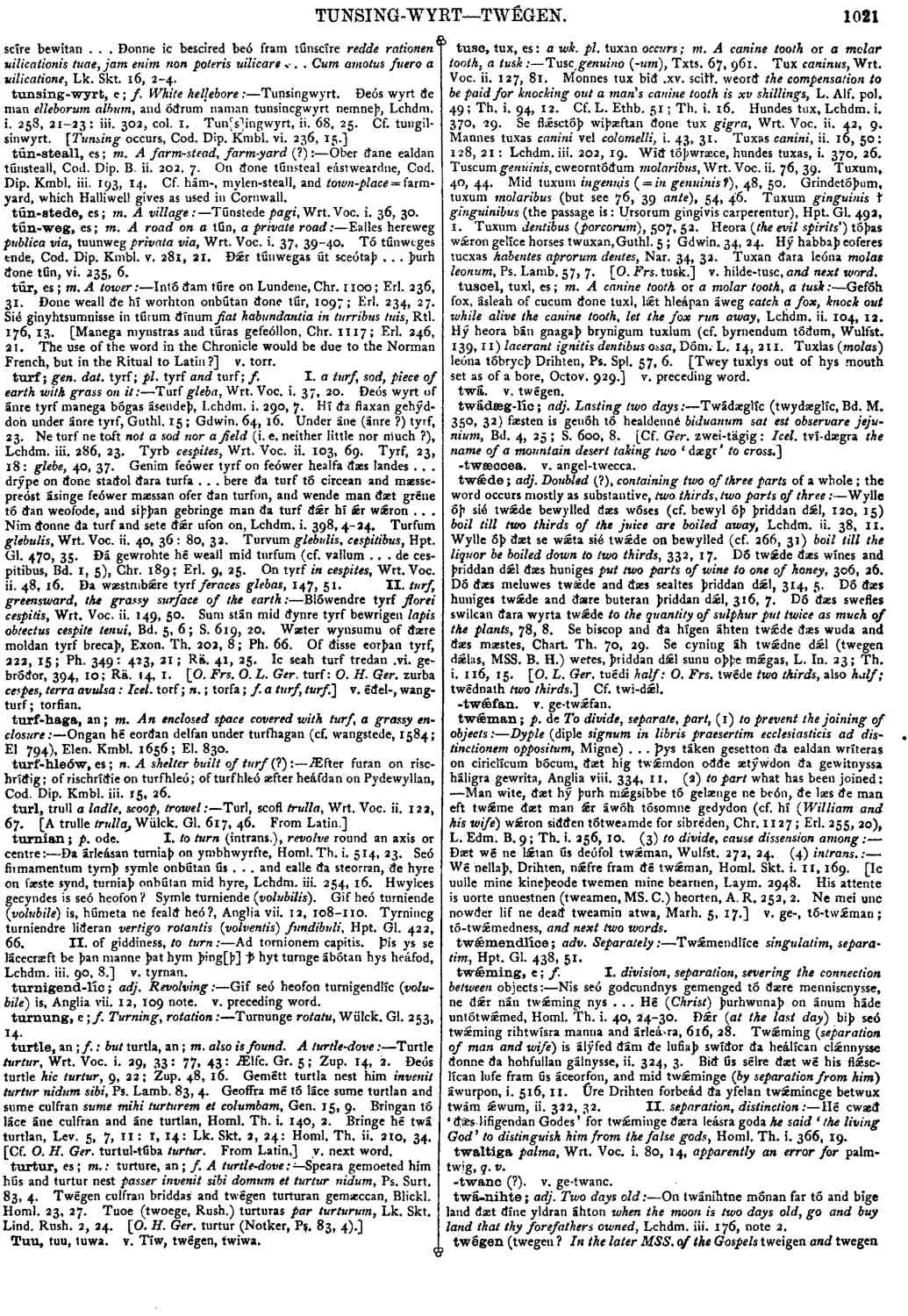twǽman
- verb [ weak ]
-
Dyple (diple
signum in libris praesertim ecclesiasticis ad distinctionem oppositum,
Migne) . . . Þys táken gesetton ða ealdan wríteras on ciriclícum bócum, ðæt hig twǽmdon oððe ætýwdon ða gewitnyssa háligra gewrita, Anglia viii.- 334, 11.
-
Man wite, ðæt hý þurh mǽgsibbe tó gelænge ne beón, ðe læs ðe man eft twǽme ðæt man ǽr áwóh tósomne gedydon (cf. hí (
William and his wife
) wǽron siððen tótweamde for sibreden,- Chr. 1127; Erl. 255, 20), L. Edm. B. 9; Th. i. 256,
10.
-
Ðæt wé ne lǽtan ús deófol twǽman,
- Wulfst. 272, 24.
-
Wé nellaþ,
Drihten, nǽfre fram ðé twǽman, Homl. Skt. i. 11, 169.
Bosworth, Joseph. “twǽman.” In An Anglo-Saxon Dictionary Online, edited by Thomas Northcote Toller, Christ Sean, and Ondřej Tichy. Prague: Faculty of Arts, Charles University, 2014. https://bosworthtoller.com/31190.
Checked: 0